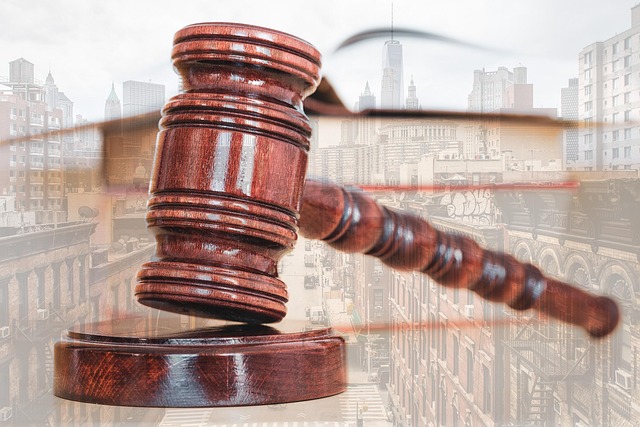Protecting Your Rights After Fraud Conviction: Recovery Strategies

After a fraud conviction, understanding and exercising rights during post-conviction proceedings is…….
In the intricate landscape of criminal justice systems worldwide, post-conviction proceedings stand as a critical phase, offering a pathway for individuals to challenge their convictions, seek relief from unlawful detentions, and advocate for restorative justice. This comprehensive article delves into the multifaceted realm of rights during post-conviction proceedings, exploring its historical foundations, global reach, and profound impact on affected individuals and society at large. By examining various facets, including legal frameworks, economic implications, technological innovations, and societal challenges, we aim to provide an insightful perspective on this vital aspect of criminal justice reform.
Post-conviction proceedings refer to the series of legal processes initiated after a person has been convicted of a crime. These proceedings allow individuals to collate and present evidence, argue for errors in their trial, or raise issues related to their sentence. The primary objectives include:
The concept of post-conviction rights has evolved over centuries, reflecting societal values and legal reforms. Historically, many criminal justice systems lacked mechanisms for individuals to appeal their convictions or seek redress for perceived injustices. However, the Enlightenment period and subsequent human rights movements sparked significant changes:
These historical developments underscore the importance of post-conviction proceedings as a cornerstone of modern criminal justice, ensuring accountability, fairness, and respect for individual rights.
The principles of post-conviction proceedings have resonated worldwide, leading to their adoption and adaptation across diverse legal systems:
The implementation of post-conviction proceedings varies across regions, influenced by cultural, political, and economic factors:
| Region | Trends | Examples |
|---|---|---|
| North America | Robust post-conviction practices, with extensive legal aid and pro bono services. | The US has a well-developed system, including state and federal habeas corpus processes. Canada’s Criminal Appeals Court handles appeals and post-conviction applications. |
| Europe | Diverse approaches, with some countries having robust systems (e.g., UK) and others facing challenges in access to justice (e.g., Eastern Europe). | The European Court of Human Rights (ECtHR) plays a pivotal role in interpreting the ECHR and influencing national practices. |
| Asia | Growing recognition, but varying levels of implementation. Some countries lack specialized post-conviction courts or mechanisms. | Japan has a well-defined system, while India’s Supreme Court handles various post-conviction matters. |
| Africa | Limited resources and infrastructure often hinder effective post-conviction processes, but awareness is increasing. | South Africa’s Constitutional Court offers remedies for constitutional violations, including those related to criminal convictions. |
The economic dimensions of post-conviction proceedings are multifaceted:
Post-conviction proceedings influence various economic sectors:
Investors view countries with robust post-conviction frameworks as more attractive, due to:
Technology has revolutionized post-conviction practices:
The future holds immense possibilities:
Post-conviction proceedings are governed by a web of policies and regulations:
Policies and regulations significantly shape:
Despite its vital role, post-conviction proceedings face several challenges:
Addressing these challenges requires a multi-faceted approach:
In the US, habeas corpus petitions have led to significant reforms and individual releases. The case of Harrington v. Richter (2014) involved a death row inmate who successfully challenged his conviction based on ineffective legal representation. This ruling underscored the importance of post-conviction proceedings in ensuring fair trials and preventing wrongful executions.
South Africa’s Constitutional Court has played a pivotal role in post-conviction justice, particularly for marginalized communities. In Mokoena v. Director of Public Prosecutions (2018), the court ruled that prisoners have a right to access legal representation during post-conviction appeals, ensuring equal protection under the law.
Canada’s Criminal Appeals Court has implemented restorative justice practices in post-conviction matters. In R. v. G. (C.A.) (2017), the court ordered a restorative conference between a victim and an offender, leading to healing for both parties and a reduced recidivism rate.
The future of post-conviction proceedings holds several promising avenues:
Emerging trends include:
To navigate the future, stakeholders should:
Rights during post-conviction proceedings stand as a cornerstone of modern criminal justice, offering individuals a vital lifeline for challenging convictions, seeking relief from unlawful detention, and advocating for restorative justice. This article has explored the historical foundations, global impact, economic implications, technological advancements, and policy frameworks shaping this complex area of law. By addressing challenges and highlighting successful case studies, we’ve illuminated the path toward enhancing post-conviction processes. As technology evolves and societal values shift, continued innovation and collaboration will be essential to ensure that justice is not only served but also experienced as fair, timely, and restorative by all those involved.
Q: What are the basic rights of an individual during post-conviction proceedings?
A: During post-conviction, individuals have the right to legal representation, due process, access to evidence, and a fair hearing. They can challenge their conviction, seek bail or parole, and advocate for relief from unlawful detention.
Q: How does technology impact post-conviction proceedings?
A: Technology enhances efficiency through digital legal research, online filing, and case management systems. It also offers new tools for evidence analysis, such as advanced forensic science and AI-assisted legal services.
Q: What is the role of international law in post-conviction rights?
A: International human rights documents, like the UDHR and ECHR, influence national laws by enshrining fair trial and effective remedy rights. They provide a framework for countries to develop robust post-conviction frameworks and promote global justice standards.
Q: How can access to legal aid improve post-conviction outcomes?
A: Legal aid ensures that individuals from diverse backgrounds have access to competent legal representation, enhancing their ability to navigate complex proceedings, present arguments effectively, and achieve favorable outcomes.
Q: What is the future of restorative justice in post-conviction matters?
A: Restorative justice practices are expected to expand globally, offering victims and offenders opportunities for healing, understanding, and reintegration. Virtual hearing technologies may also enhance accessibility for restorative justice processes.

After a fraud conviction, understanding and exercising rights during post-conviction proceedings is…….

The RF Securities Industry Regulation Framework aims to maintain fairness and integrity in financial…….

Understanding financial fraud dynamics is complex due to evolving crimes like embezzlement, money la…….

Understanding post-conviction rights is vital for individuals facing legal complexities after a crim…….

Public corruption cases, involving bribery to abuse of office, harm financial systems and public tru…….

Consumer protection laws safeguard rights in business dealings. In post-conviction suits, courts ens…….

Post-conviction proceedings offer critical rights for individuals to challenge verdicts or sentences…….

Finance crime investigations uncover fraud, money laundering, and corruption through forensic accoun…….

Litigation Support Services act as crucial guardians in legal matters, providing specialized assista…….